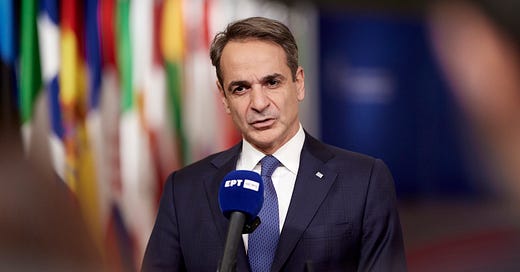Greek foreign policy metamorphoses – Part 3
The past 15 years have transformed Greek foreign policy, creating strategic alliances based on energy, defence and the Law of the Sea, but its biggest problem, maritime borders with Turkey, remains

This article is the last of three, originally written as a chapter for ‘Turbulence in the Eastern Mediterranean’, a strategic dossier published this month by the International Institute of Strategic Studies (IISS). It is presented here updated and in full for the first time.
6. Ukraine war elevates Greece geopolitically
Russia’s invasion of Ukraine provided a direct example of what could happen to Greece. Here was a country on the East-West faultine, invaded by a larger, militarily stronger, revisionist and irredentist neighbour. Many Greeks did not draw that parallel. Opinion polls at the time consistently showed that roughly half the country sided with Russia[1].
This was a position fraught with contradiction. Greeks have a historic religious attachment to Russia, the largest Orthodox country, but many seem ignorant of the fact that Ukraine is also majority Orthodox (Unitarian); and many seem unaware that the Greek Patriarchate in Constantinople sided against Moscow in recognising the Ukrainian church as autocephalous (self-governing) in 2019[2], in the tradition of Orthodox national churches that aligned themselves with wars of independence from the Ottoman Empire. This seems an apt parallel, too, as Ukraine fights for independence from a Russian empire.
The second source of Russophilia is diplomatic doctrine. There has long been a belief among many Greek diplomats that friendly ties with Russia act as a counterbalance to the threat from Turkey. This belief has no real historical basis. Russia has almost always acted against Greek interests in the Balkans; but the performance of a warm relationship with Moscow dovetails with a leftist belief in a “multi-dimensional” foreign policy (i.e. not exclusively Western-oriented) and a conservative belief in the organic power of shared religion.
Keep reading with a 7-day free trial
Subscribe to Hellenica to keep reading this post and get 7 days of free access to the full post archives.


